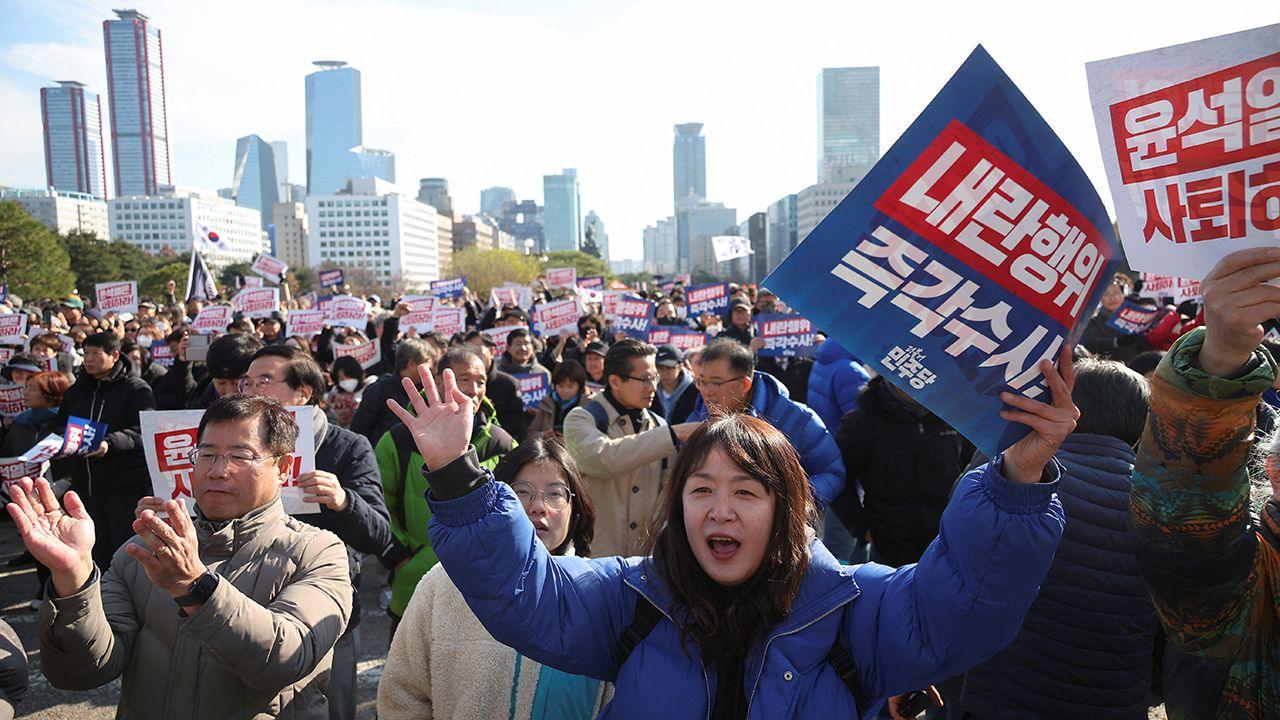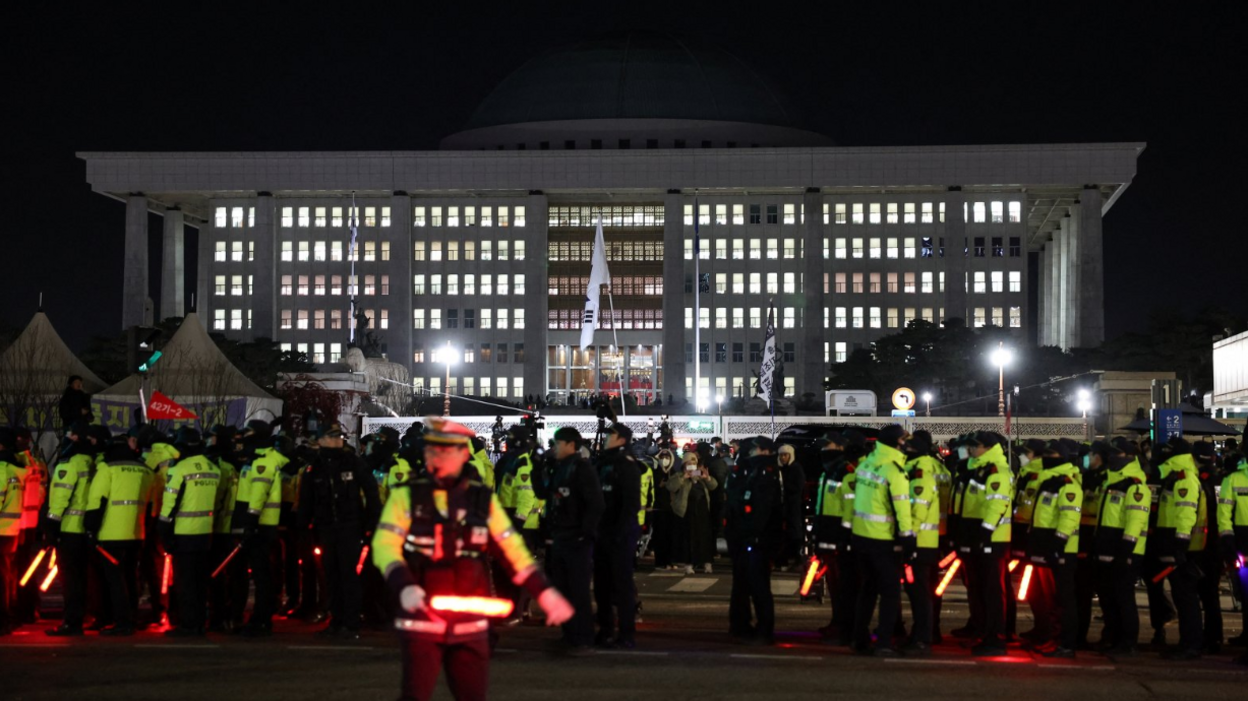South Korean president lifts martial law after MPs block it

Demonstrators gathered in opposition to the president's surprise declaration of martial law, and called for him to resign
- Published
South Korea's President Yoon Suk Yeol has said that martial law would be lifted and troops withdrawn after lawmakers voted to block the move.
Just three hours before, he had announced that he was imposing martial law in an unexpected late-night TV address. He said it was necessary to protect the country from "North Korea's communist forces" and to "eliminate anti-state elements".
Thousands of protesters arrived at the gates of the National Assembly, as lawmakers evaded police lines and forced themselves into the building to vote down the order.
Mired in corruption scandals, 63-year-old Yoon has been a lame-duck president since his People Power Party lost the general election in April this year.
The scandals have ranged from stock manipulation to one involving the First Lady accepting a Dior bag.
He has been increasingly battling unpopularity and a political stalemate with opposition lawmakers who now control parliament.
The opposition has also moved to impeach cabinet members and prosecutors, including the head of the government's audit agency for failing to investigate the First Lady.
A stalled budget bill this week appeared to be the latest challenge.
When he announced his shock decision to impose military rule, Yoon initially blamed North Korea, but then hit out at the opposition, accusing them of using their majority to paralyse his government's agenda.
His second announcement - that he was reversing his earlier order - was met with cheers from protesters outside South Korea's parliament early on Wednesday.
"Just a moment ago, there was a demand from the National Assembly to lift the state of emergency, and we have withdrawn the military that was deployed for martial law operations," Yoon said in a televised address around 04:30 (1930 GMT Tuesday).
"We will accept the National Assembly's request and lift the martial law through the cabinet meeting," he added.

Police officers mobilised in response to protesters outside the National Assembly in Seoul on Tuesday
"We won!" shouted one protester, according to AFP news agency, among the crowds that had braved freezing temperatures to keep vigil.
Martial law means rule by military authorities in a time of emergency, and can mean the suspension of normal civil rights.
It has not been imposed in South Korea since the country returned to democracy in 1987.
The last time it was used was in 1979, after the assassination of long-term military ruler Park Chung Hee during a coup.
Yoon's move also caused consternation abroad. A spokesperson from the US State Department said its alliance with South Korea remained "iron-clad".
But they added: "We are continuing to watch with grave concern, and we will continue to follow developments on the ground very closely."
A spokesperson for UK Prime Minister Sir Keir Starmer also said its government was "monitoring the situation closely".